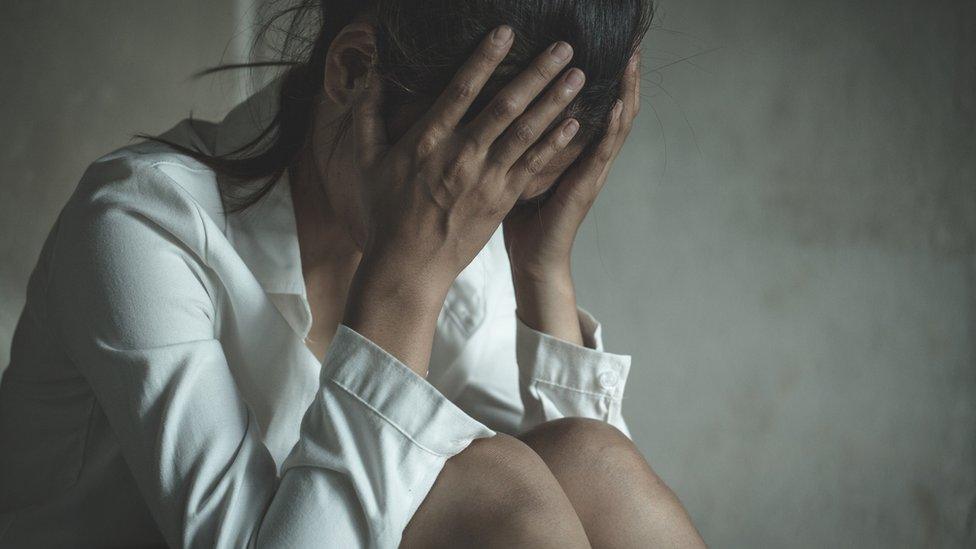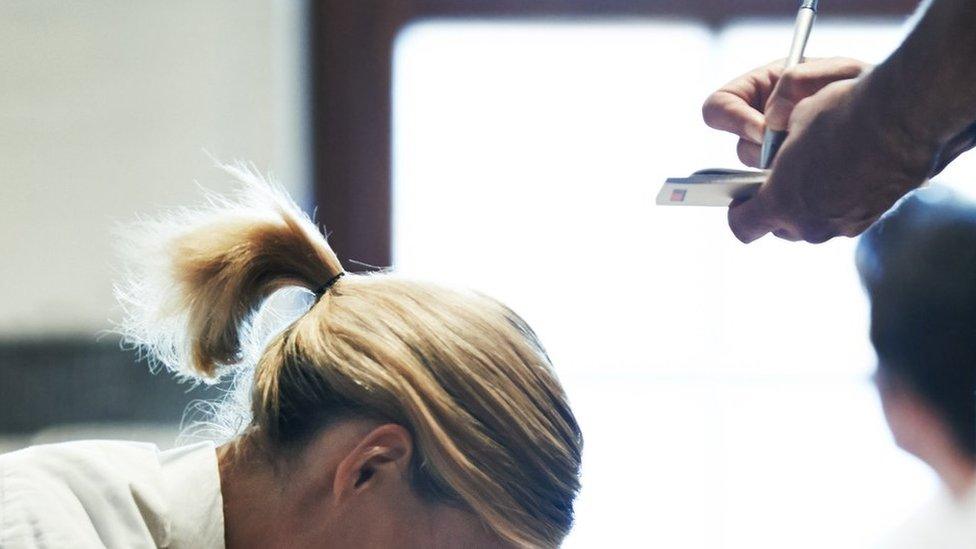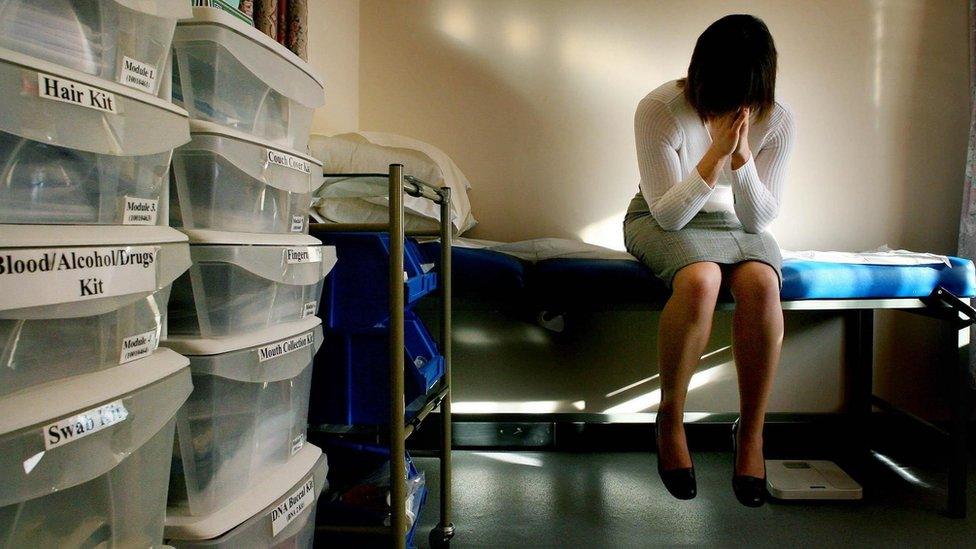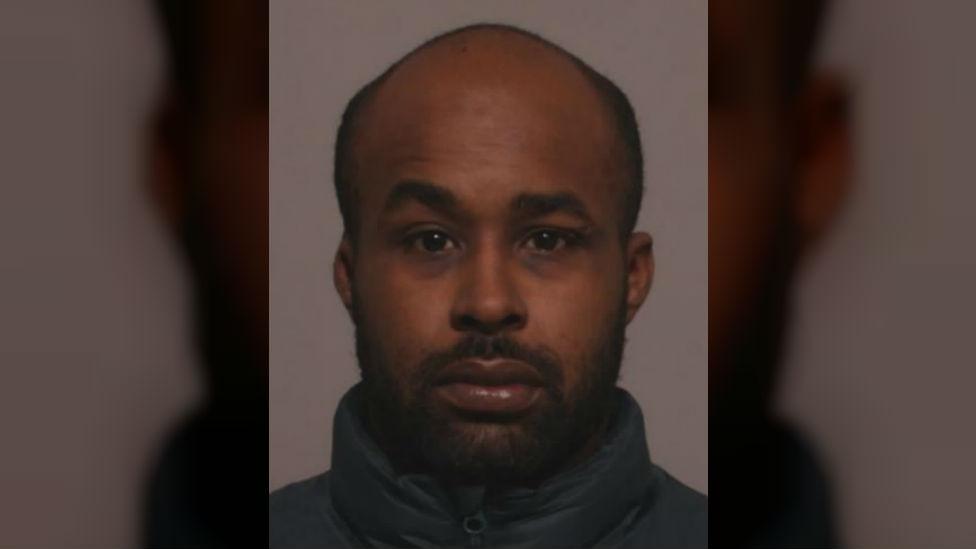Call for free legal help to protect rape victims' data
- Published

Victims said they did not believe the data requests bore much relevance to their complaint
Rape victims should get free legal help to stop "excessive personal information requests", a report has concluded.
The study, led by Loughborough University, surveyed 586 victims with most claiming the criminal justice process was "insensitive and unfair".
Victims in England and Wales have no right to legal aid, although there is some access allowed in Scotland.
The Crown Prosecution Service (CPS) said only "reasonable lines of inquiry" should be carried out.
Dr Olivia Smith, a criminology and social policy expert, said the vast majority of police officers interviewed as part of her research thought the CPS asked forces to gather excessive amounts of data from victims.
This included information from GPs, schools, social services and counselling, as well as mobile phone data.
One complainant, who made a report to police in 2018, said: "I wish they told me that signing a form to give the police access to my phone meant they would be examining my consensual sexual relationships and sexual history.
"I didn't realise my relationships with my exes, how many friends I have [and] how often I go out is relevant to being raped by a school teacher."
Some complainants said they delayed counselling over fears their notes would be accessed.
Others said the strain of the legal process was not worth the eventual conviction.

The CPS said only "reasonable lines of inquiry" should be carried out to avoid unnecessary intrusion into personal data
The report, external was commissioned by the police and crime commissioner for Northumbria following a pilot scheme.
It found a victim's experiences of the criminal justice system was improved when offered free and independent legal advocacy.
'Catastrophic failure'
Dr Smith said: "Our research shows the huge emotional cost of reporting to the police and we need to find a way to change this.
"This is about more than conviction rates. It is about dignified treatment, regardless of outcome."
Katie Russell, from Rape Crisis, said there had been a "catastrophic failure of justice" when it came to rape and sexual offences.
She said: "It's our experience from providing front-line support to victims and survivors that they are being pressurised into handing over vast quantities of personal data and there are question marks over how relevant much of that data is."
A spokesperson for the CPS said: "We completely understand that how personal information is used in criminal proceedings can be a source of anxiety.
"Balancing the need to respect privacy and pursue all reasonable lines of inquiry to make sure the justice system is fair for all is an ongoing challenge.
"It is critical victims are not deterred from seeking justice as a result of these concerns.
"Our guidance is clear: complainants' and witnesses' mobile telephones should not be examined as a matter of course in every case.
"Only reasonable lines of inquiry should be pursued to avoid unnecessary intrusion into personal data."
The report is to be shared with the Criminal Justice Board, MPs and peers.
A government spokesperson said: "We are working closely with survivors' groups and experts, through our ongoing review, to ensure victims are given the support they need."

Follow BBC East Midlands on Facebook, external, Twitter, external, or Instagram, external. Send your story ideas to eastmidsnews@bbc.co.uk, external.
Related topics
- Published30 November 2020

- Published9 November 2020

- Published23 July 2020
